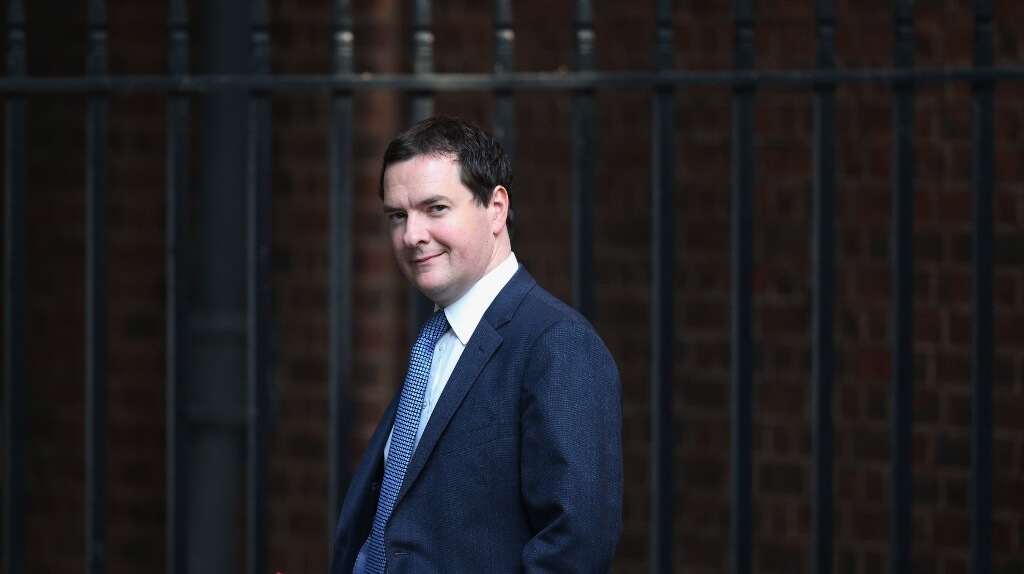The Budget is a week away. Will it be doom and despair or can we dream of some goodies for UK entrepreneurs and small businesses?
Budget 2016: What Does Business Want?
The Budget is a week away. Will it be doom and despair or can we dream of some goodies for UK entrepreneurs and small businesses?

With just a week to go before George Osborne delivers the 2016 Budget – one of the toughest of his tenure chancellor, we asked six business leaders for their thoughts, hopes and expectations as to what will be included in the statement.
Adam Hale, CEO of global human resources management solutions provider Fairsail, wants more investment in technical skills, especially for women:
“I’d like to see more money for University Technical Colleges (UTCs) to expand specific technology secondary education. Reading UTC is the first one to be rated ‘Outstanding’. Five thousand people did A level computer science last year, but of these, fewer than 500 were girls – we need this statistic to be 10-20 times greater.
“Address the real costs in pensions: Reduce the £1.5tn of public sector final salary pensions liability rather than removing tax relief from money purchase schemes.
“Announce a whole scale simplification of the tax system to remove 95% of the rules – UK has longest tax code in the world. It’s not working. We need to start again.”
Earl Yardley, director at Industrial Vision Systems, a supplier of machine vision solutions, want more support for the production industries:
"With the recent figures showing that UK factory growth has fallen, this is the ideal opportunity to produce announcements which can provide a positive outlook for the manufacturing industry.
“The more investment and tax breaks within this space, the more stability there is for key industries, such as automotive, pharmaceutical and medical device production, which, in turn, will also enhance the performances of UK engineering firms and tier one suppliers into those industry sectors.
“It's important that the UK manufacturing industry remains competitive and builds on its momentum which has been established in recent years. In order for the manufacturing space to fulfil its key role in taking the UK economy forward, it needs a course of action which avoids piling more costs on employers but will instead support their investment plans for the future."
Despite Mr Osborne’s promise not to hit pensions in his Budget, Vince McLoughlin, partner at Russell New, a firm of business, tax, and charity advisers, wants to make doubly sure the chancellor has no nasty surprises for savers:
"While I fully appreciate the chancellor must find ways to reduce the deficit, this is the third time in less than a year that retirement savings have been hit. A flat rate pension scheme would hit the pockets of millions of people very hard.
“This doesn't just impact the wealthy; with the recent real cut in the threshold at which 40% tax begins, many middle managers, teachers and civil servants are hit too. Effectively, workers would be punished for saving - it's as simple as that.
“There is a conflict between the government’s desire to see people save more for their retirements and a cut in the reliefs and benefits that can be obtained by saving. A flat rate of 25% would be worth £2 a week extra for basic-rate taxpayers on average; not enough for a cup of coffee at a high street chain whilst the rest of the savings will go straight to the Treasury.
“There was a time when investing in pensions to provide financial independence in retirement was seen as a good thing. Now we seem to be going to the other extreme and persecuting even the middle income earners. Does this now mean that we are encouraging or discouraging pension provision?
Peter Burgess, Director at Retail Human Resources, a London-based recruitment company specialising in the retail sector, believes the government should take on more support for new parents:
"There needs to be more help for maternity leavers which is funded by the government rather than the employers. Maternity returners are a vital asset to any business but the government is introducing “taxes on employers” via the back door.
“It is true that the majority of maternity pay is paid for by the state. But an ever increasing burden is being placed on employers by making them pay for all of the non-salary benefits, including holiday pay; this has to be paid for by the employer.
“The maternity leavers certainly deserve and need these benefits, and indeed provision for them should be improved. But surely, in the interests of enhancing equality by discouraging discrimination, these benefits should be paid for out of general taxation.
“Imagine you are a small struggling business of 10 people. The cost of paying for these benefits is possibly tens of thousands of pounds. This must be a huge disincentive to recruit those likely to start families.
"I would also like to see all these benefits suspended but a decent state funded maternity provision of, say, the minimum wage throughout the 52 weeks leave. This would do more for equality than any amount of legislation or nonsensical rulings coming out of Brussels."
Alistair Bingle, managing director at Bishop's Move, the UK's largest family owned removals and storage company, thinks stamp duty changes should reflect regional variations in house prices for first-time buyers.
"Despite welcome reform over the past 18 months, there remains huge regional differences in the payment of stamp duty by first-time buyers. It is more urgent than ever for the government to reform the current stamp duty structure to remove the clear distortions it creates across regional housing markets.
“It is down to them to help reduce the burden faced by many first-time buyers. If Stamp Duty was set up and carefully aligned with regional house prices it would, by virtue, encourage the populous to move to areas other than the main towns and cities which would in reality ease prices in areas such as London as there wouldn't be such a demand and stimulate regional economic growth in other areas of the UK.
John Newton, Co-founder, CTO and Chairman of Alfresco, what’s more to be done about the UK’s low productivity rates:
“We continue to pull away from the economic crash of 2008-9 and yet our levels of productivity stay firmly stuck at levels around 15% lower than the national level achieved before the financial crisis.
“Closing the productivity gap would add billions of pounds to the UK economy every year. But herein lies wider issues, the lack of productivity has many causes; underinvestment, red tape, transport, and education. But crucially, the UK Commission for Employment and Skills has found that a lack of digital skills is hampering the UK economy.
“The UK can’t rely on home grown talent alone. To stay productive, and compete with businesses on a global scale, UK businesses need to be allowed to recruit the best staff from throughout Europe.
"Any withdrawal from the EU structure would impact negatively on the current flexible labour laws and our ability to trade freely across national borders.”
Thanks for signing up to Minutehack alerts.
Brilliant editorials heading your way soon.
Okay, Thanks!





